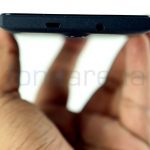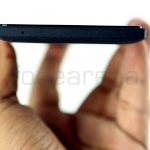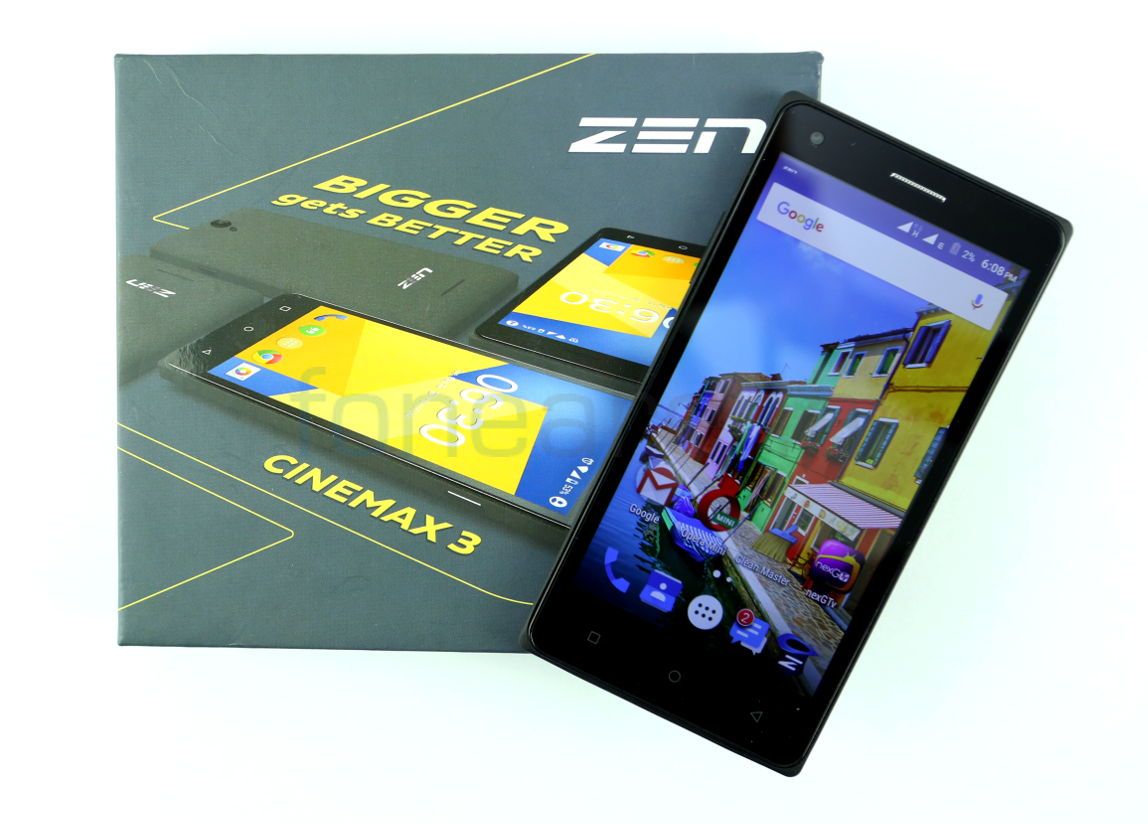
Zen Mobile launched the Cinemax 3, its budget smartphone with a 5.5-inch display last month for Rs. 5499. It is the successor of the Cinemax 2 that we had reviewed last year. Is this a good successor? Let us find out in the complete review.
Box Contents
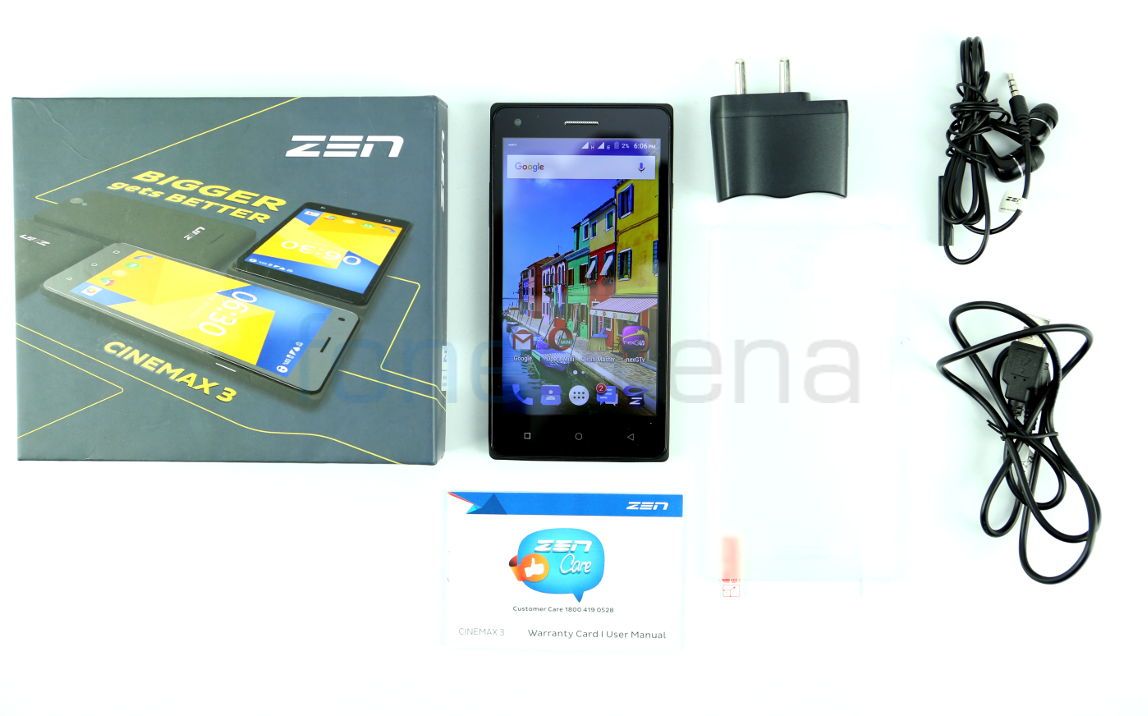
- Zen Cinemax 3 smartphone in Black Color
- In-ear headset
- 2-pin charger (5V-1A)
- Micro USB cable
- Scratch guard
- Clear case
- User manual and warranty information
Display, Hardware and Design
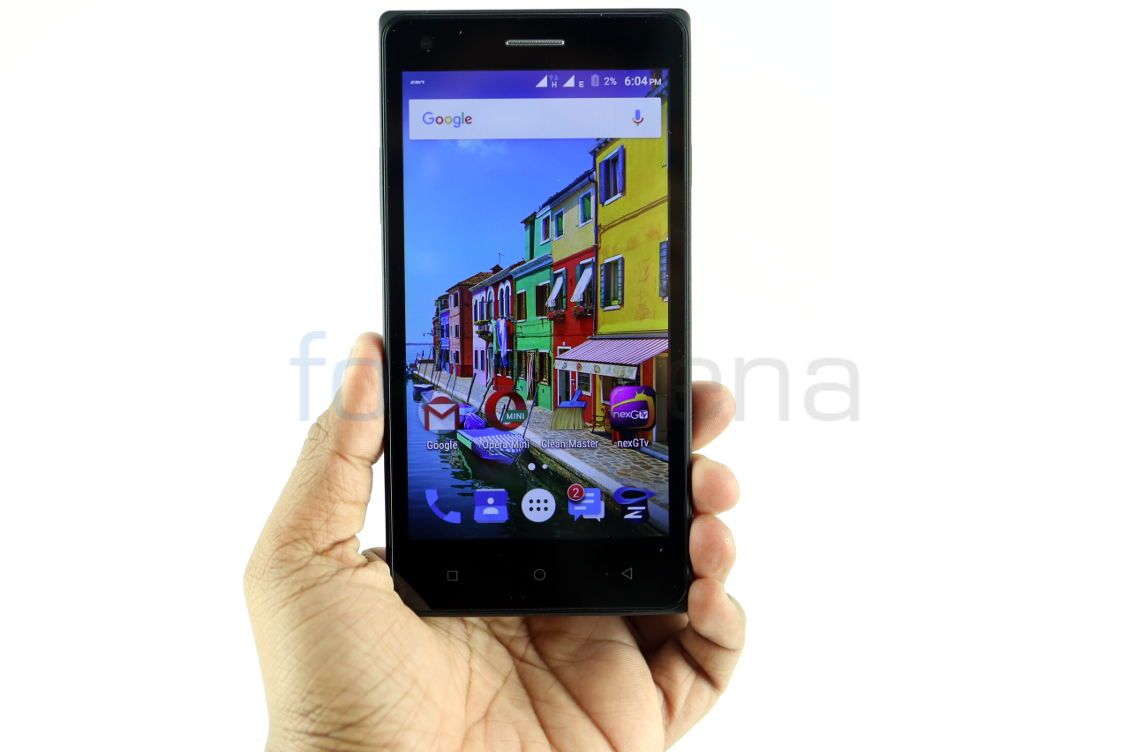
The Cinemax 3 has the same 5.5-inch display as the Cinemax 2, but the display resolution has been reduced from qHD (960×540 pixels) to FWVGA (854×480 pixels) so the pixel density is down to 178 PPI, which is very low so it is not sharp. The display is bright and the colors are decent, but the viewing angles are average. The company doesn’t say if this has a toughened glass for protection. The display is glossy; hence it is prone to fingerprints. You can use the bundled scratch guard to prevent the display from scratches.
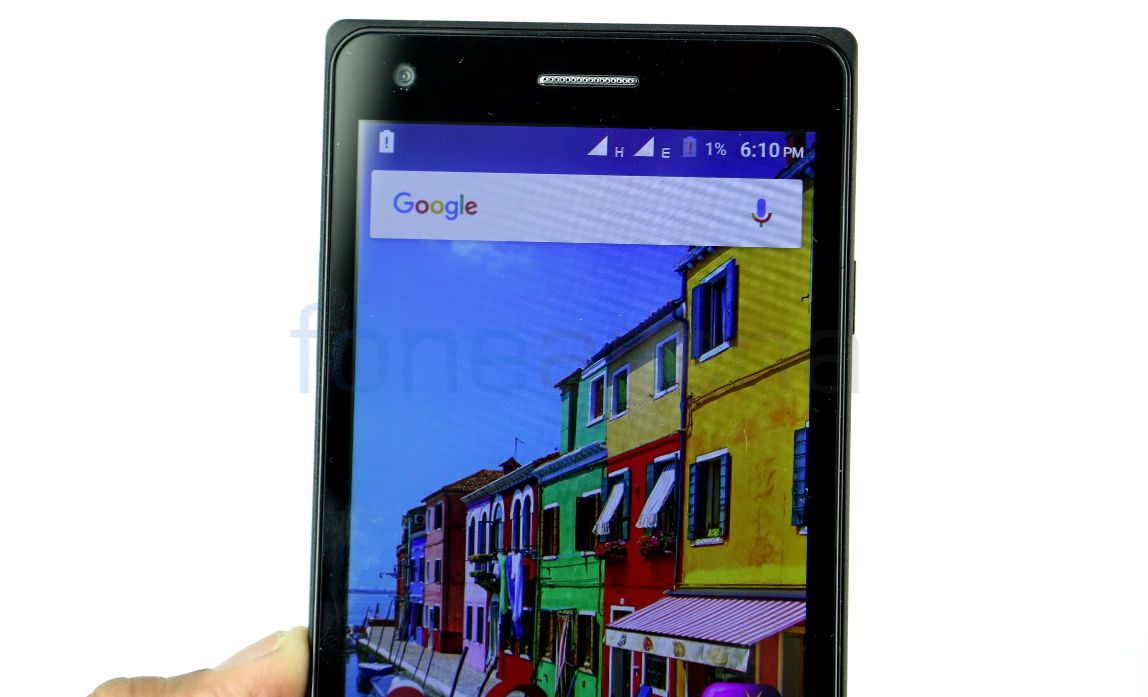
Even though the company says that it has a 3.2-megapixel front-facing camera, it actually has a 2.1-megapixel camera on the front, which is just average. It has a proximity sensor, but lacks an ambient light sensor, similar to its predecessor. Since it doesn’t have an ambient light sensor you have to adjust the brightness manually using the slider depending on the conditions. Even though it shows auto brightness option, this sets the brightness slide in the middle. It also lacks notification LED.
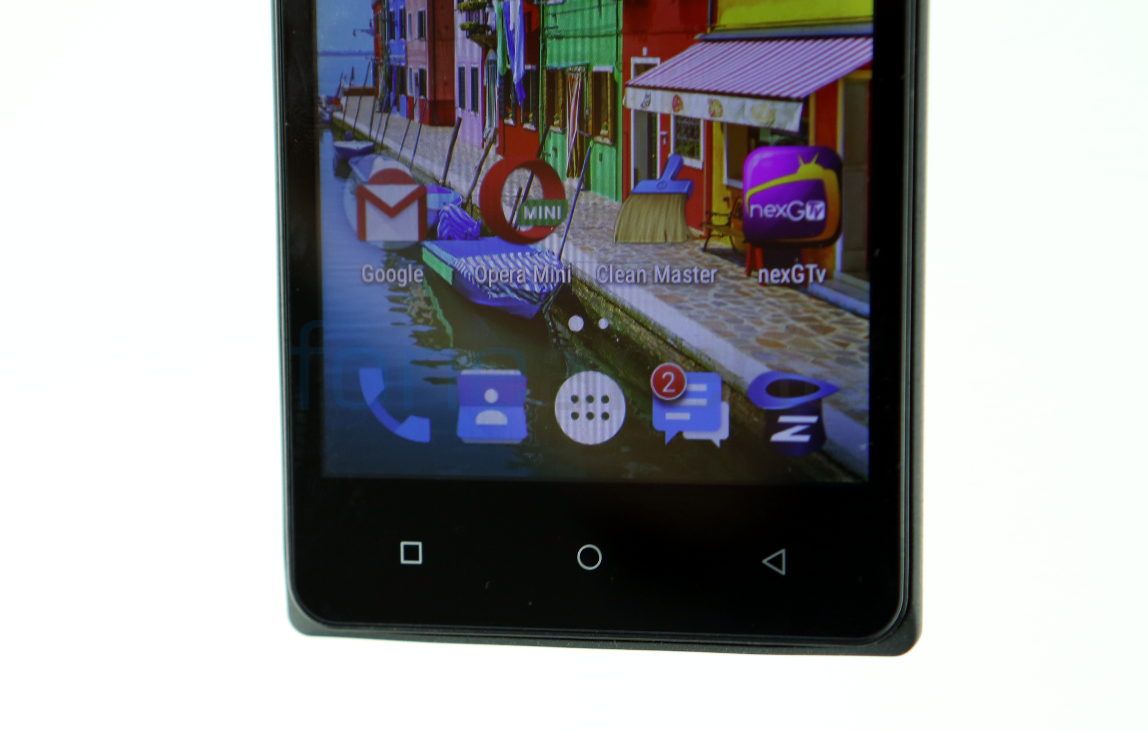
It has the usual set of capacitive touch buttons below the display. These are not backlit, but offer haptic feedback when pressed. The bezel is huge, above and below the display making the phone tall.
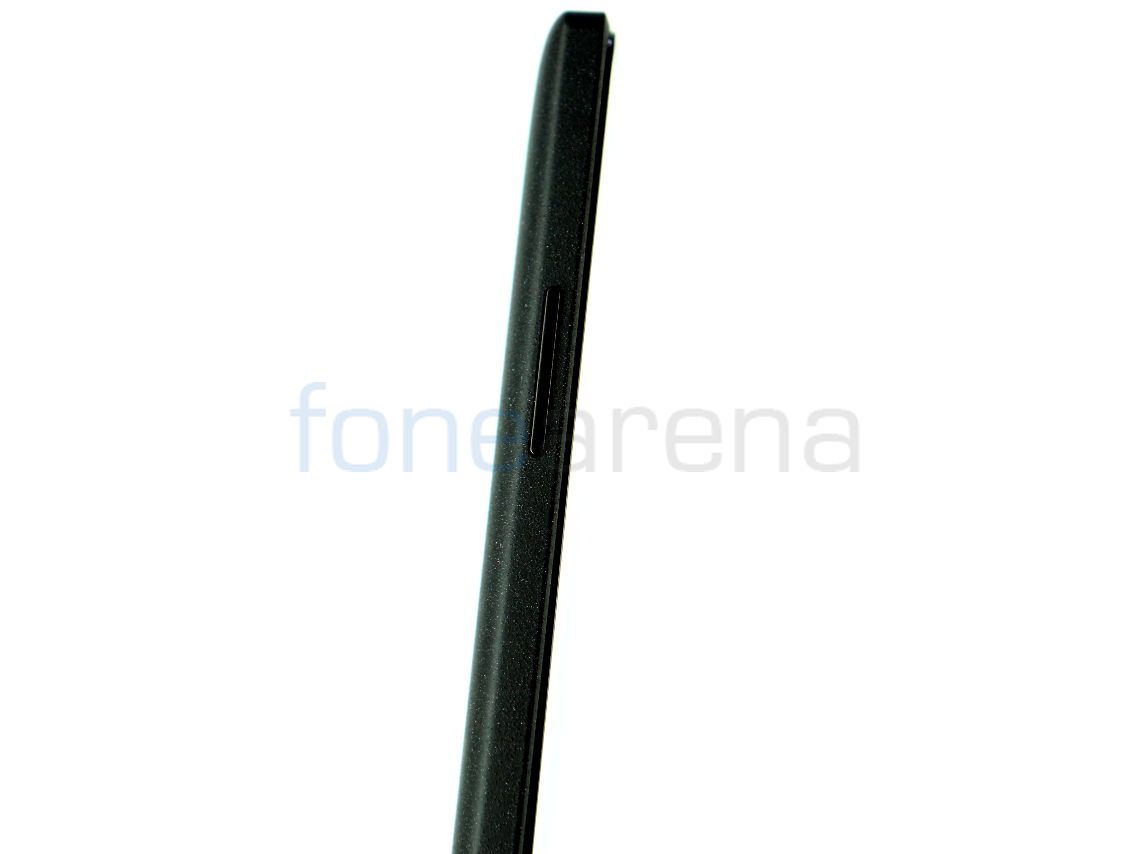
The volume rockers are present on the left side. The back cover extends to the side of the phone, which houses the buttons.
The power button is present on the right side. The 3.5mm audio jack and micro USB slot is present on the top. The microphone hole is present on the bottom.
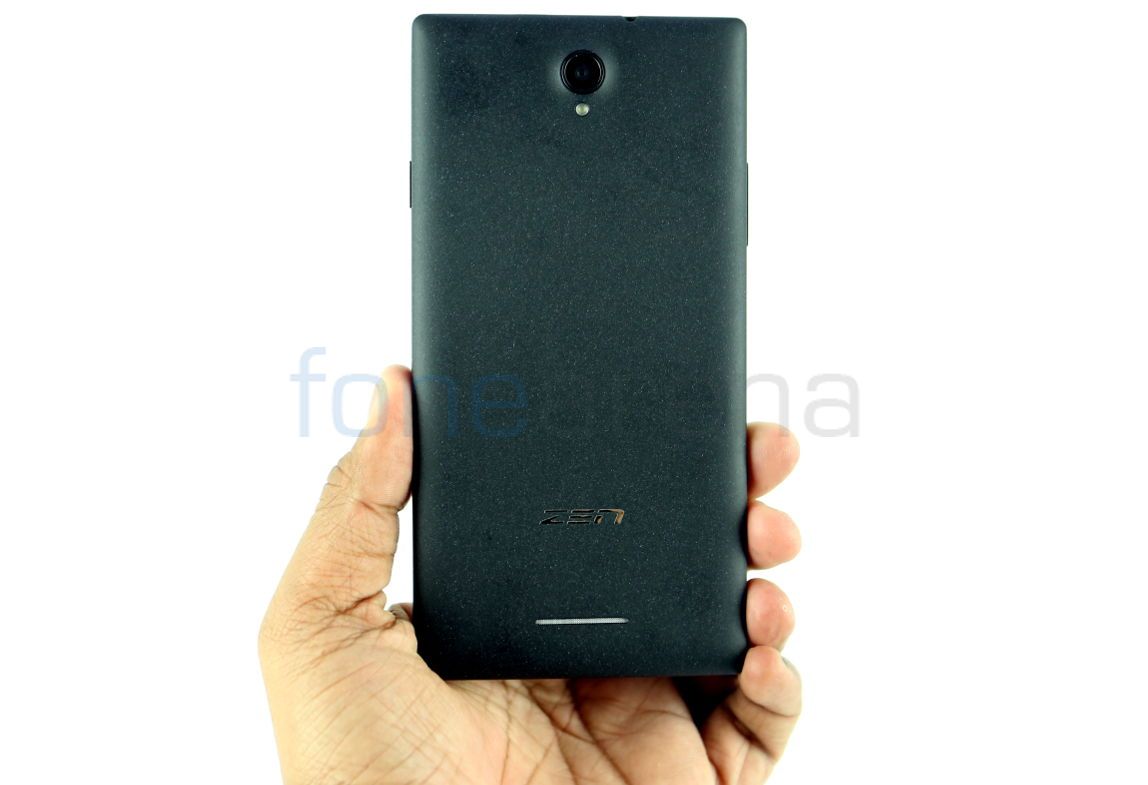
The plastic back has rough feel so it doesn’t slip out of your hands easily. On the back there is a 5-megapixel auto focus camera with single LED flash. The loudspeaker grill is present on the bottom part of the back, and there is a Zen logo above it.
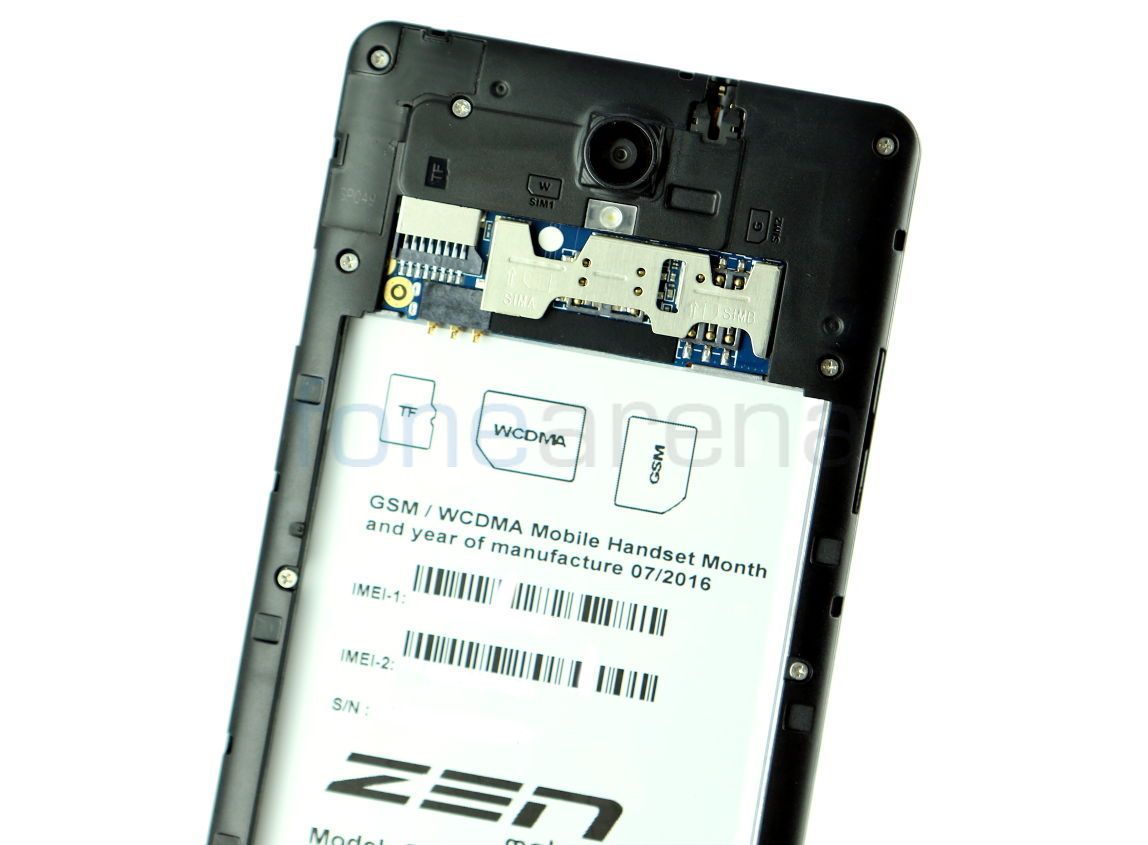
Opening the back cover reveals a huge 2900mAh removable battery. The micro SD card slot is present above the battery. Next to it is the primary full SIM slot and a secondary micro SIM slot.
Camera
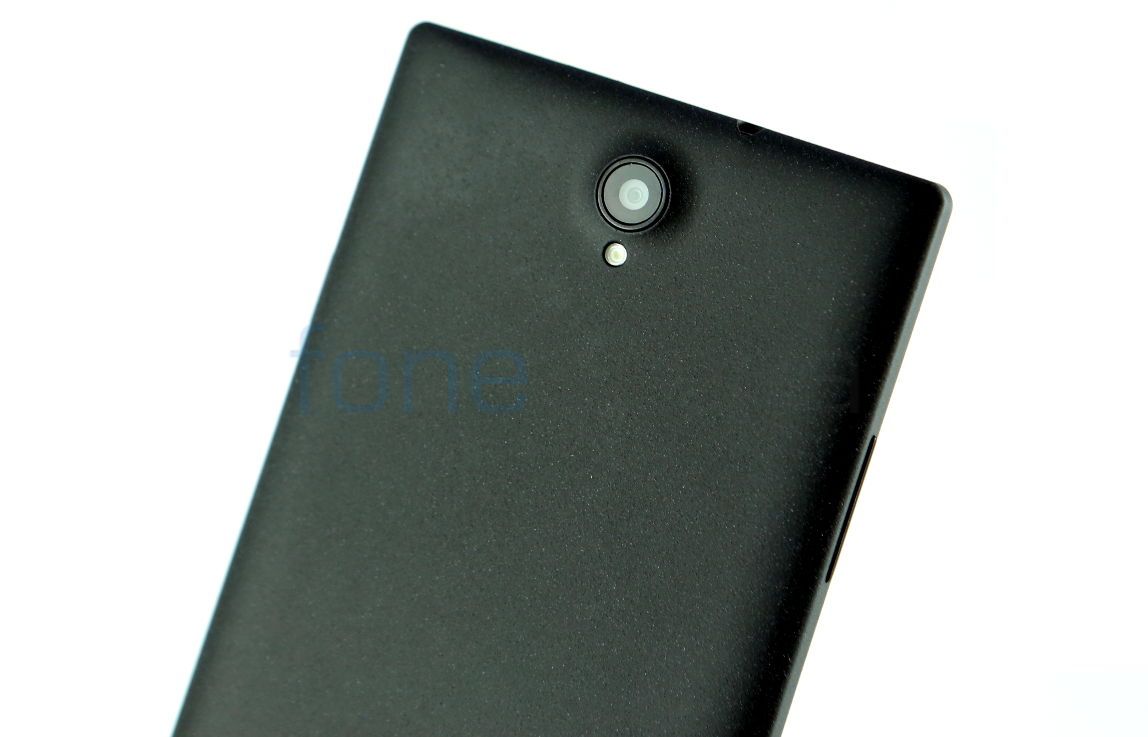
Google Camera is the default camera app. Daylight shots are decent, but images lack details. Macro shots came out well and the HDR shots are too bright. Low-light images have a lot of noise, but the LED flash is helpful in capturing images in such conditions, but it can be overpowering for closeup shots. The front-facing camera is also average.
Check out some camera samples (click the image to view full resolution picture).


It can record videos at 1080p full HD resolution, but the video quality is average and doesn’t have much details.
Software
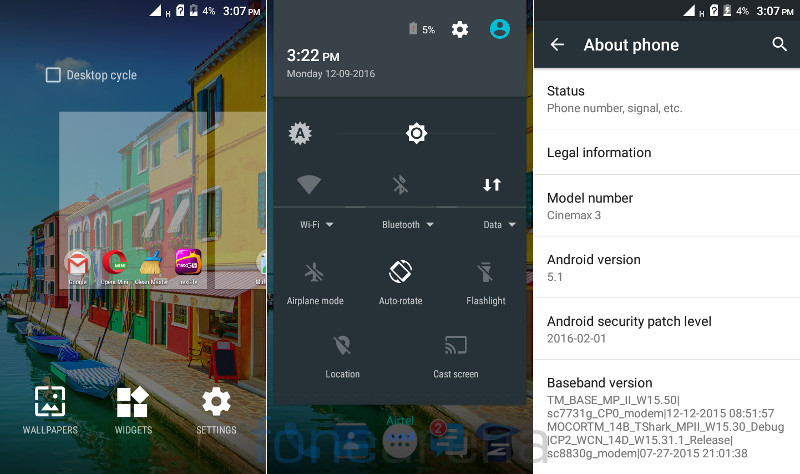
Coming to the software, the Zen Cinemax 3 runs on Android 5.1 (Lollipop), which is almost stock with few visual changes. The company doesn’t say if the smartphone will get the Android 6.0 (Marshmallow) update. The homescreen looks almost similar to the Google Now screen, but it doesn’t launch Google Now on swiping from left to right. You can launch the dialer or camera directly from the lock screen.
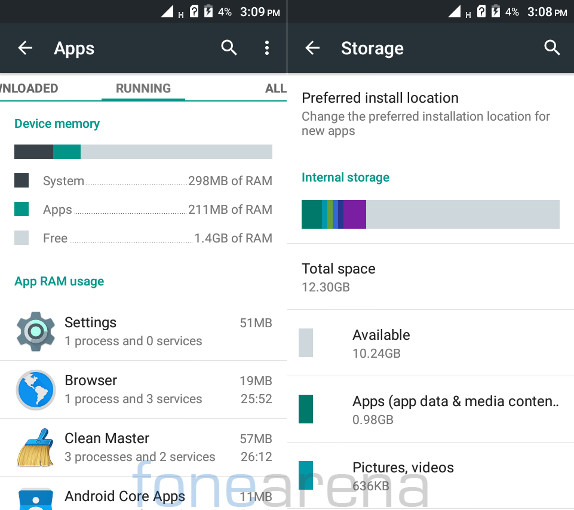
Out of 2GB of RAM, you get 1.97 of usable RAM. About 1.4GB of RAM is free when the phone is idle, with just the default apps running in the background. Out of 16GB of internal storage you get just 10.2GB of usable storage that can be used for installing apps and for mass storage.
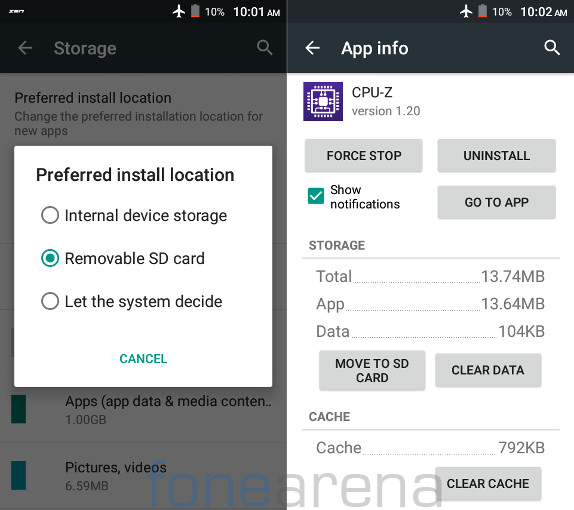
Once you set the preferred install location to SD card, you get option to move apps to the SD card.
Apps
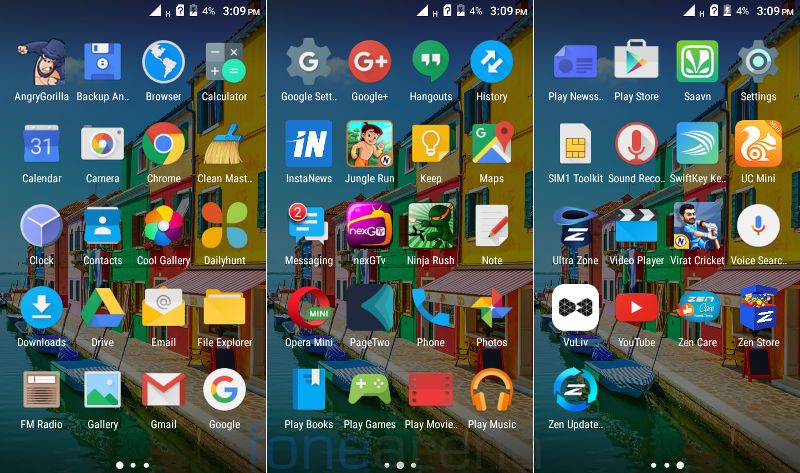
The phone comes with a lot of pre-loaded apps that cannot be removed. These occupy almost 1GB of storage. Other than the usual set of utility apps and Google apps, it comes with Cool Gallery, DailyHunt, InstaNews, nexGTv, Opera Mini, PageTwo, Saavn, Snapdeal, SwiftKey Keyboard, UC Mini, Ultra Zone, VuLiv, Zen Store and ZenCare. It also has some games that include, Angry Gorilla, Jungle Run, Ninja Rush and Virat Cricket.
Music Player and FM Radio
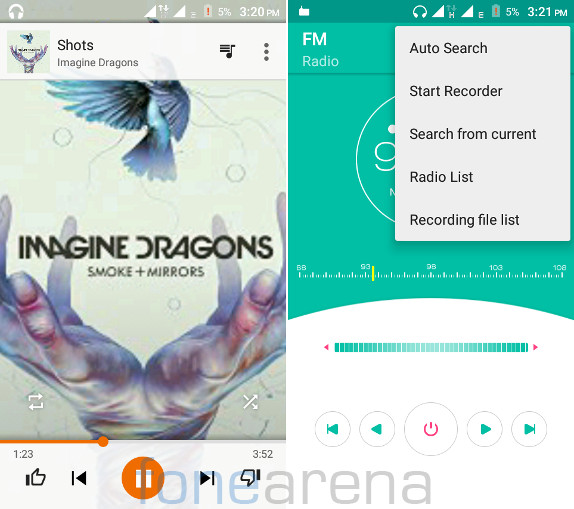
Google Play Music is the default music player. Audio from the bundled earphones is good and the loudspeaker output is decent. FM Radio has a neat UI and comes with auto search and recording. The default video player can play full HD 1080p videos, but it is not smooth.
Dual SIM and Connectivity
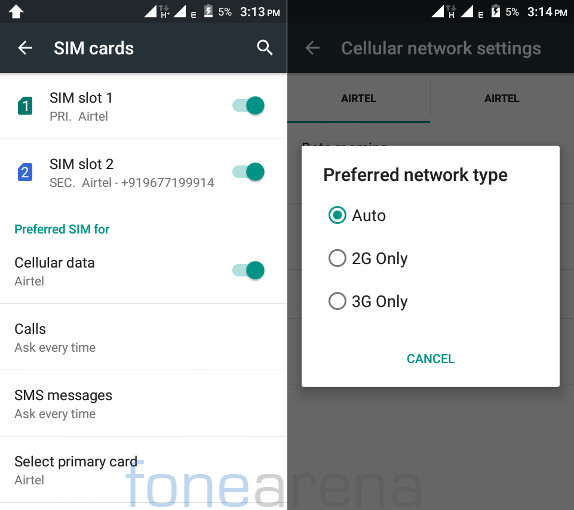
It has SIM manager option that lets you set default SIM for data, calls and SMS. Only the primary SIM supports 3G, while the other SIM supports only 2G (EDGE). Connectivity features include, 3G HSPA+, Wi-Fi 802.11 b/g/n, Bluetooth 4.0 with A2DP and GPS. It doesn’t have magnetic compass. The call clarity is good through the earpiece and there were no call drops.
Performance and Benchmarks
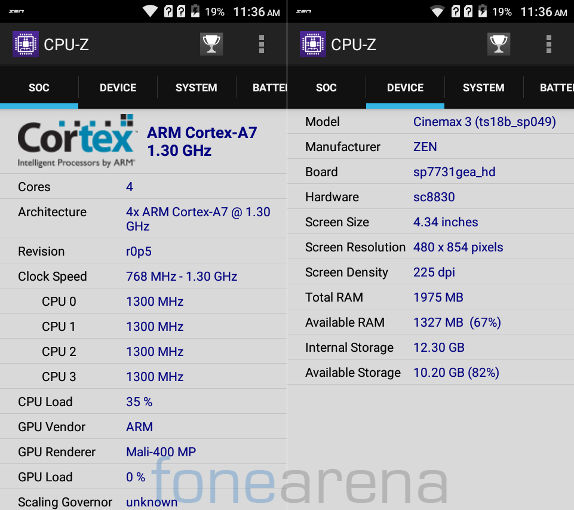
The smartphone is powered by a quad-core Spreadtrum SC7731 processor with four ARM Cortex A7 cores clocked at 1.3GHz per core and has Mali-400 GPU. The performance is decent with occasional lags. 2GB of RAM is more than enough for multitasking. Check out some synthetic benchmark scores below.
AnTuTu Benchmark 5
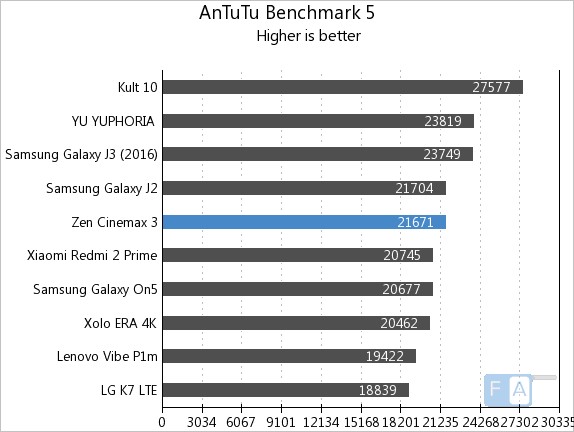
It scored 21617 points in the AnTuTu Benchmark 5.
Geekbench 3 Multi-Core
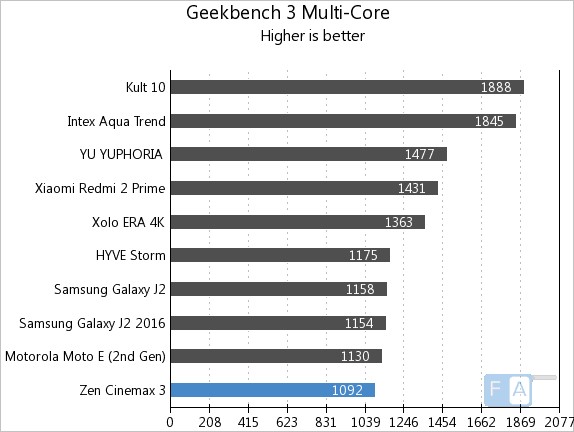
It managed to score 1092 points in the Geekbench 3 Multi-core benchmark.
Basemark OS II
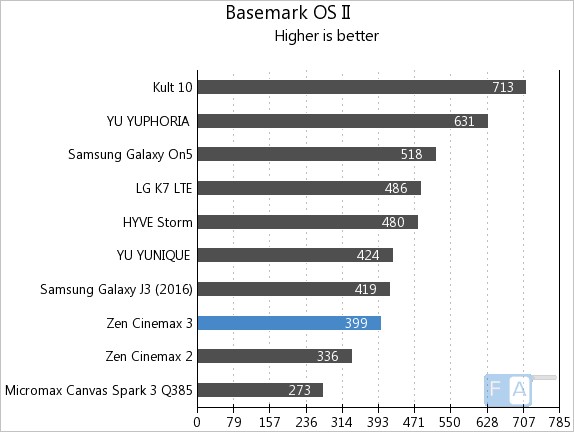
It managed to score 399 points in the Basemark OS II benchmark.
Battery life
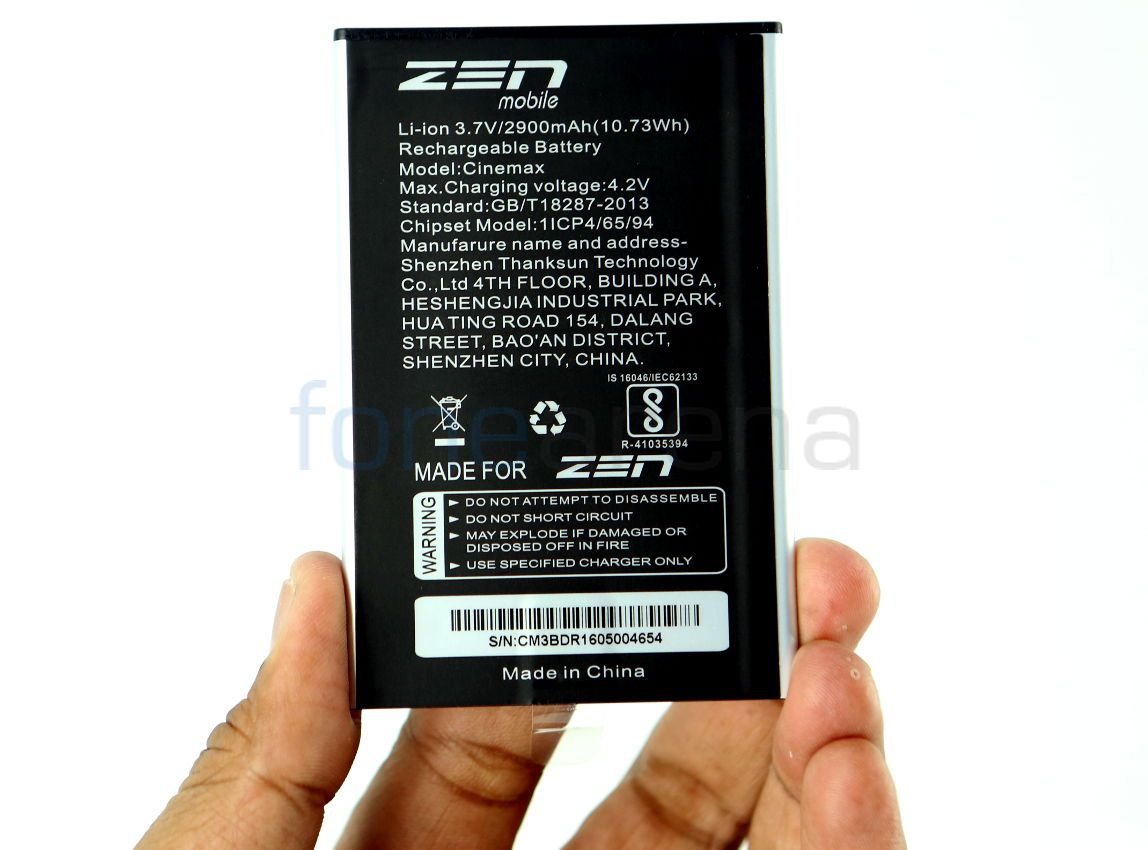
The 2900mAh battery offers a good battery life for who day use, with average use when both the SIM cards are on use. With heavy usage, it lasts for less than a day. It also has battery saver mode that lets you save the battery by reducing the device’s performance and limiting background data when it reaches a threshold of 15% or 5%.
Conclusion
Overall, the Zen Cinemax 3 is just an average smartphone for the price of Rs. 5,499. Increase in RAM and internal storage is a welcome move, but the display resolution has been reduced and the camera is not improved compared to the predecessor. It is hard to recommend this phone when there are several smartphones around similar price range that offer better specifications and some phones even have 4G support. To summarize, here are the pros and cons of the smartphone.
Pros
- Good build quality
- Decent performance
- Good battery life
Cons
- Low resolution display
- No ambient light sensor
- Huge to handle
- Excessive bloatware


